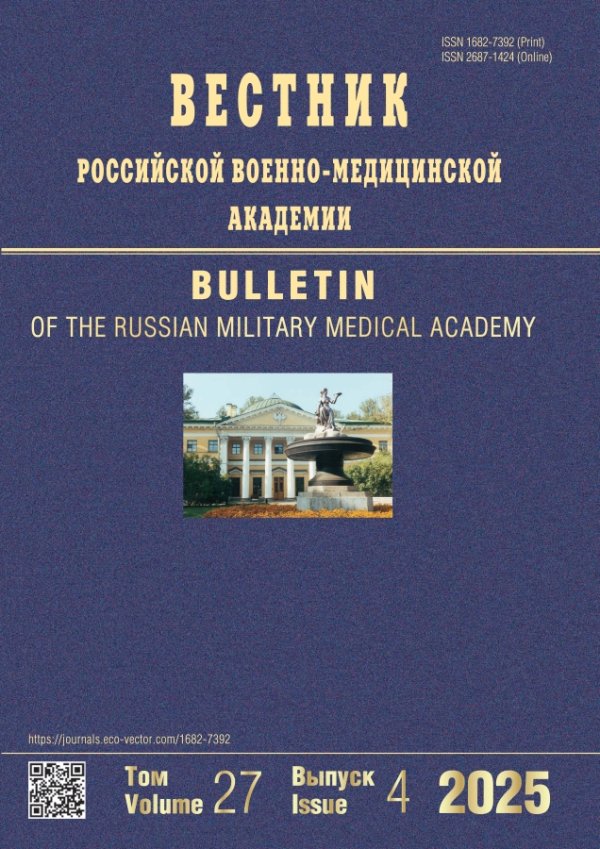ПОЧЕТНЫЙ ДОКТОР ВОЕННО-МЕДИЦИНСКОЙ АКАДЕМИИ ПРОФЕССОР В.В. ВОЛКОВ (К 100-ЛЕТИЮ СО ДНЯ РОЖДЕНИЯ)
- Авторы: Куликов АН
- Выпуск: Том 23, № 1 (2021)
- Раздел: Хроника
- URL: https://journals.rcsi.science/1682-7392/article/view/63661
- DOI: https://doi.org/10.17816/brmma63661
- ID: 63661
Цитировать
Аннотация
Резюме. Представлены основные вехи жизненного пути, творческой, клинической, научной и педагогической
деятельности Героя Социалистического Труда, лауреата Государственной премии Союза Советских Социалистических Республик, заслуженного деятеля науки Российской Советской Федеративной Социалистической Республики, почетного доктора Военно-медицинской академии им. С.М. Кирова, профессора генерал-майора медицинской
службы Вениамина Васильевича Волкова. Его фундаментальные исследования в таких разделах офтальмологии,
как организация специализированной помощи в Вооруженных силах, офтальмотравматология, комбинированные
поражения и ожоги глаз, витреоретинальная патология, глаукома, офтальмоонкология, физиология органа зрения,
патология слезоотведения, разработка и внедрение лазеров в офтальмологическую практику, сделали его одним
из авторитетнейших специалистов в отечественной и мировой офтальмологии. В 1967 г. В.В. Волков возглавил кафедру офтальмологии, которой руководил 22 года до своего увольнения из Вооруженных сил 20 сентября 1989 г. Его
многогранная учебная, лечебная и научная деятельность была отмечена многочисленными наградами и званиями. Сотрудники кафедры офтальмологии Военно-медицинской академии им. С.М. Кирова гордятся тем, что они являются
учениками школы профессора В.В. Волкова, а преподавателям старшего поколения посчастливилось работать вместе
с ученым, внесшим существенный вклад в развитие советской и российской офтальмологии, труды которого получили широкое мировое признание. Профессор В.В. Волков является ученым, сформировавшим научную школу кафедры
офтальмологии Военно-медицинской академии им. С.М. Кирова в ее современном облике. Поэтому в 2019 г. кафедре
присвоено его имя.
Список литературы
Дополнительные файлы








